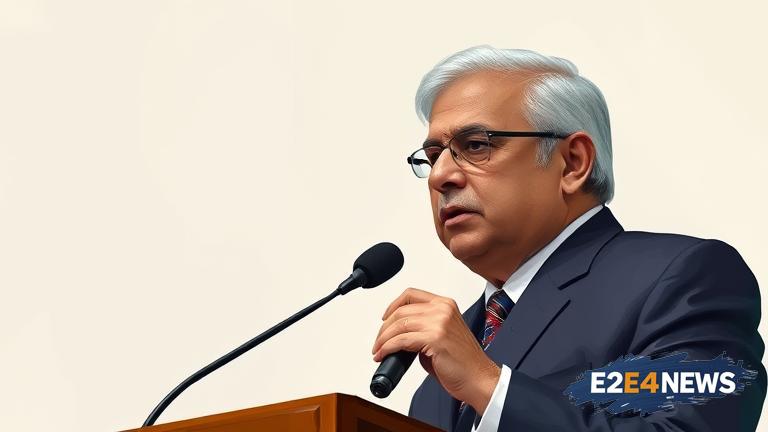Pakistan’s foreign policy has been undergoing significant changes in recent years, with a focus on economic diplomacy and regional cooperation. The country is seeking to reset its relationships with other nations, particularly in the wake of the COVID-19 pandemic and rising global tensions. This confident reset is aimed at promoting Pakistan’s economic interests, enhancing regional security, and addressing global challenges such as climate change and terrorism. The new approach prioritizes engagement with neighboring countries, including China, India, and Afghanistan, to foster greater cooperation and stability in the region. Pakistan is also seeking to strengthen its ties with other countries, including the United States, the European Union, and the Gulf states, to promote trade, investment, and people-to-people exchanges. Furthermore, the country is emphasizing the importance of multilateralism and international cooperation to address global challenges. The confident reset is also driven by Pakistan’s desire to promote its soft power, including its culture, education, and tourism sectors. The country is investing heavily in infrastructure development, including the China-Pakistan Economic Corridor (CPEC), to enhance its connectivity and trade links with other nations. Additionally, Pakistan is seeking to promote its IT sector, with a focus on innovation, entrepreneurship, and digital economy. The government is also prioritizing the development of its human resources, with a focus on education, skills training, and youth empowerment. In terms of regional cooperation, Pakistan is actively engaged with the South Asian Association for Regional Cooperation (SAARC) and the Economic Cooperation Organization (ECO) to promote economic integration and cooperation. The country is also seeking to enhance its cooperation with the Shanghai Cooperation Organization (SCO) to address regional security challenges. Moreover, Pakistan is emphasizing the importance of conflict resolution and peacebuilding, particularly in the context of the Afghan peace process. The country is also seeking to promote its role as a responsible global player, with a focus on disarmament, non-proliferation, and counter-terrorism. The confident reset is also driven by Pakistan’s desire to promote its national interests, including the protection of its sovereignty, territorial integrity, and economic security. The government is also prioritizing the development of its defense sector, with a focus on modernization, indigenization, and self-reliance. In conclusion, Pakistan’s confident reset in foreign policy is a significant development, with far-reaching implications for the country’s relationships with other nations and its role in the global community. The new approach prioritizes economic diplomacy, regional cooperation, and multilateralism, with a focus on promoting Pakistan’s national interests and addressing global challenges. As the country moves forward with its confident reset, it is likely to face numerous challenges and opportunities, requiring careful navigation and strategic engagement with other nations. The success of the confident reset will depend on Pakistan’s ability to promote its economic interests, enhance regional security, and address global challenges, while also protecting its sovereignty and promoting its national interests. Overall, the confident reset is a positive development, with the potential to promote greater cooperation, stability, and prosperity in the region and beyond. With its rich cultural heritage, diverse economy, and strategic location, Pakistan is well-placed to play a significant role in regional and global affairs, and its confident reset is an important step in this direction. The country’s future trajectory will depend on its ability to navigate the complexities of global politics, while also promoting its national interests and addressing the challenges of the 21st century. As Pakistan seeks to promote its influence and role in the global community, it is likely to face numerous opportunities and challenges, requiring careful diplomacy, strategic engagement, and a commitment to promoting its national interests. In the years ahead, Pakistan’s confident reset is likely to have significant implications for the country’s relationships with other nations, its role in regional and global affairs, and its ability to address the challenges of the 21st century.





